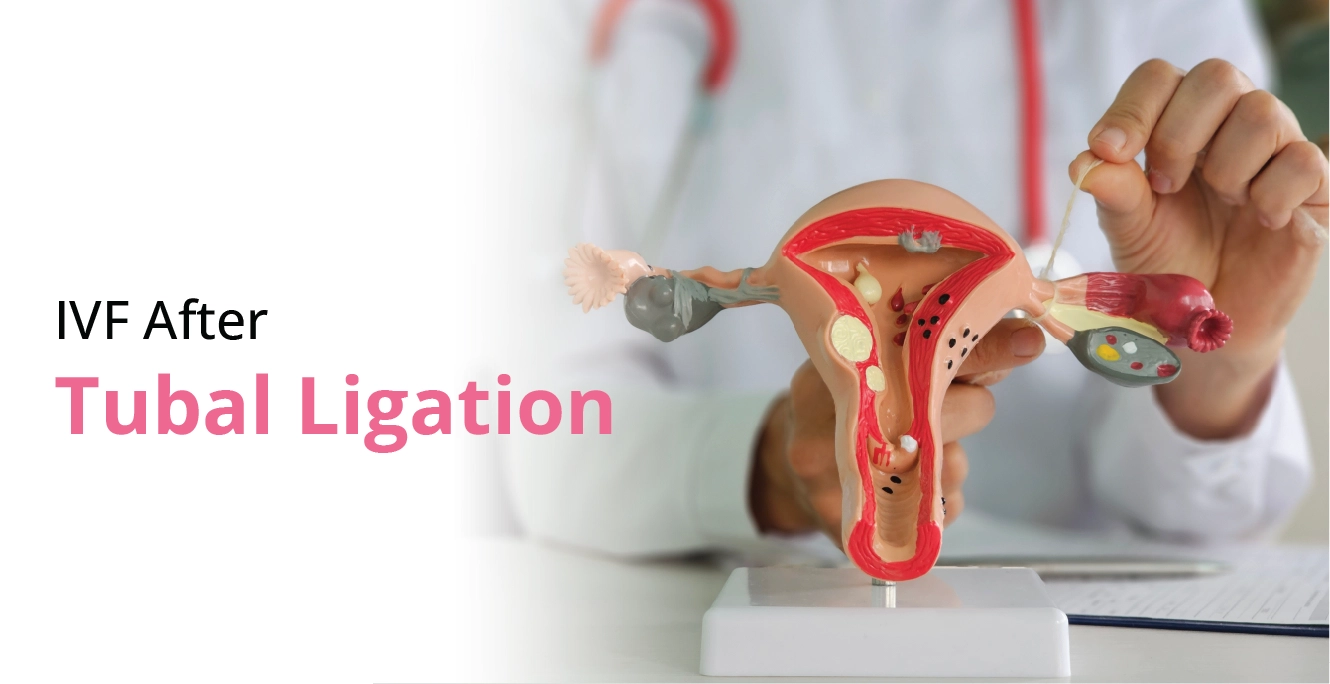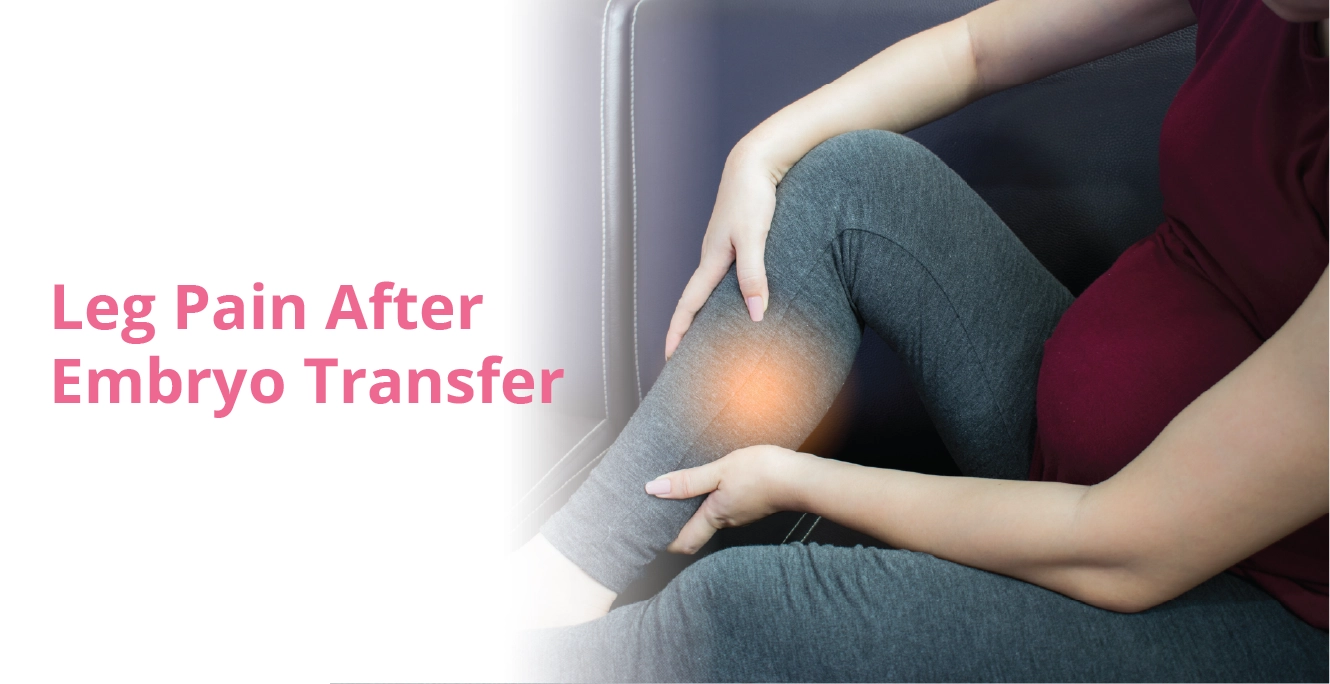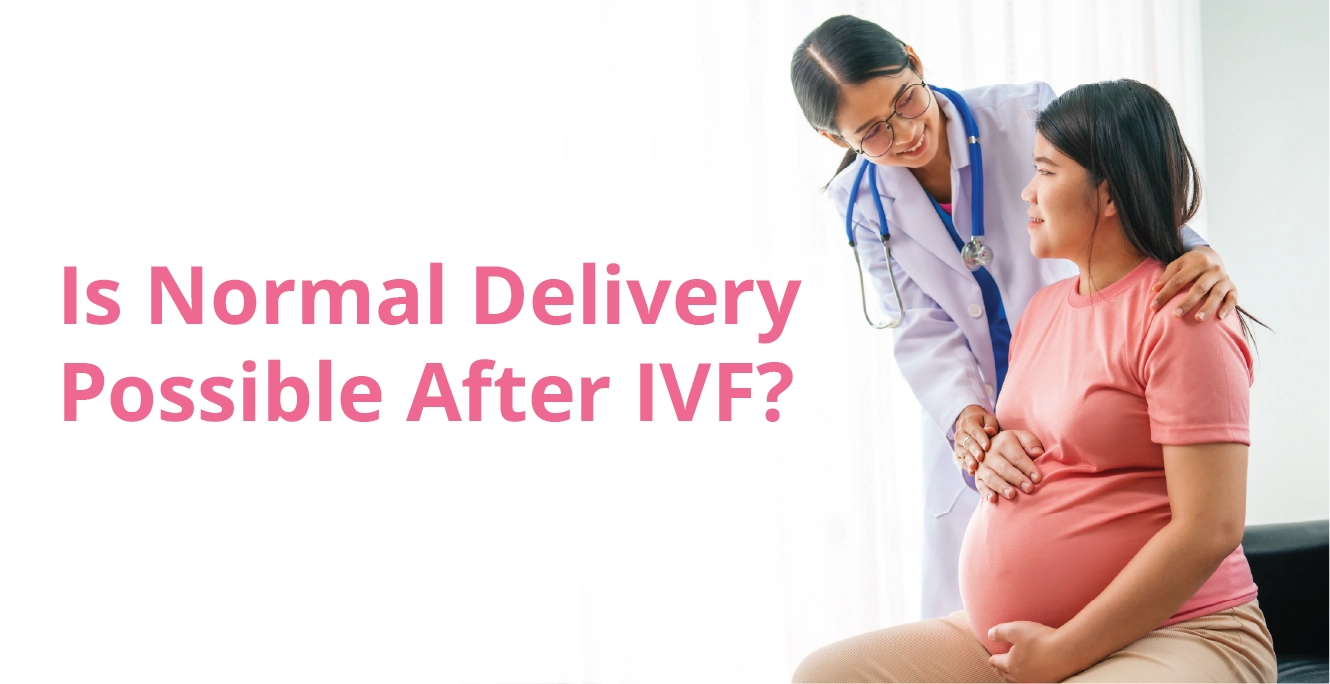
Positive Signs After Embryo Transfer

Table of Contents
- What is an Embryo Transfer?
- Signs After Embryo Transfer
- Is It Normal to Have No Symptoms After an Embryo Transfer?
- Common Positive Signs After Embryo Transfer
- Other Potential Symptoms After Embryo Transfer
- The Role of hCG in Pregnancy Symptoms
Nearly 3 million couples in India actively seek fertility treatments. While assisted reproductive technology (ART) treatments are effective and give hope to couples, they can also be challenging. The wide array of these treatments and their effects can create a lot of confusion for the patients. One such segment of the treatments is embryo transfer.
Embryo transfer, briefly put, is the process of implanting a fresh or frozen embryo resulting from fertilisation of the eggs and sperm retrieved from respective partners.
It is an important step in any fertility treatment where conception is the primary goal. However, like with any course of action, embryo transfer can also have positive or negative impacts affecting your chances of a healthy pregnancy.
In this article, we will study the positive signs after embryo transfer. Let’s get started by learning about the process of embryo transfer.
What is an Embryo Transfer?
In an ideal IVF treatment, certain hormonal drugs are given to the female partner to stimulate ovulation. Once ovulation is induced, healthy and mature eggs are retrieved. Simultaneously, a semen sample is also collected from the male partner. This semen sample is washed and concentrated to aspirate healthy sperm cells.
The mature eggs and sperm are then combined and allowed to fertilise in a Petri dish in a carefully monitored environment at an IVF lab. The resulting embryo is allowed to develop 5–6 days after fertilisation.
Embryo transfer is the last step of an IVF cycle. In this step, your fertility doctor identifies and selects a healthy embryo and implants it in the lining of the uterus.
Most times, an IVF cycle results in the creation of multiple embryos. There are, hence, two types of embryo transfers: fresh embryo transfer and frozen embryo transfer.
A fresh embryo transfer is when the resulting embryo is transferred after 4-5 days of retrieval. A frozen embryo transfer is one in which the embryo has been previously created and preserved for future pregnancies. When multiple embryos are created in fertilisation, patients have the choice to freeze extra embryos for future pregnancies.
Signs After Embryo Transfer
An IVF pregnancy test is usually done after a 2-week wait from an embryo transfer. This wait can be exhausting for some and take a toll on your mental and physical wellbeing. Hence, understanding the symptoms that are occurring in these two weeks is important.
Based on the success and failure of the implantation, you are likely to experience varying signs of an embryo transfer.
Is It Normal to Have No Symptoms After an Embryo Transfer?
Yes, it is very normal to not have any symptoms after an embryo transfer. Every person’s body is different, and how the treatment responds to every individual’s body will also differ. So, it is common for a woman to have zero symptoms after the embryo transfer and still have a positive pregnancy. This is because many symptoms appear due to the presence of estrogen and progesterone intake in the form of supplements that are given to the patient during the IVF treatment. Some patients do not see any symptoms even after waiting for 2 whole weeks. In conclusion, a positive pregnancy test is the only surefire way to determine whether your embryo transfer was successful.
Common Positive Signs After Embryo Transfer
A positive embryo transfer indicates a successful conception, meaning that your pregnancy has started. Hence, signs of a positive embryo transfer are somewhat the same as the early signs of pregnancy. After an embryo is implanted in the uterus and pregnancy is induced, one can expect to experience changes in the body. Here are a few signs that indicate embryo transfer has been successful:
- Pelvic pain and discomfort – You will experience mild to moderate discomfort and cramping in your stomach, pelvis, and lower back. These are known as implantation cramping. These symptoms may be similar to menstrual cramps.
- Sore and swollen breasts – You can expect certain changes in the areola and nipple area of your breasts. Most women experience some amount of swelling and breast soreness.
- Fatigue – It is common to feel tired and drowsy throughout the pregnancy. However, you may feel extra tired after an embryo transfer due to the changes in hormonal levels. You will have high levels of tiredness or sleepiness, especially after eating a meal.
- Nausea and vomiting – In the later stages of an embryo transfer, you can experience slight levels of nausea and even vomiting. Popularly known as morning sickness, these symptoms are usually seen in the early days of pregnancy.
- Food aversions – After a successful embryo transfer, it is normal to have aversions to certain food items and smells.
- Changes in vaginal discharge – A positive embryo transfer can lead to an increased vaginal discharge due to changes in your hormonal levels. The excess amount of vaginal discharge helps maintain an optimal state for the endometrium for implantation.
- Spotting or light bleeding – Sometimes, you may also experience light spotting halfway (7 days) through the two weeks. It is known as implantation bleeding.
- Increased urge to urinate – hCG pregnancy hormones are injected during the IVF cycle. These hormones can cause frequent urination in women. An increased urge to urinate is also a symptom of pregnancy.
- Missed period – Missing your periods after an embryo transfer is a sign of implantation success and highlights that the pregnancy is initiated.
- No symptoms – It is also possible for some women to experience no signs of a frozen embryo transfer. Having no symptoms does not mean that your embryo transfer has failed.
Primarily, an absence of the above-given positive signs highlights implantation failure. Please note the above symptoms sometimes also appear due to the hormonal drugs used in the IVF cycle.
Nonetheless, you should consult your fertility doctor to understand the success or failure of your embryo transfer procedure. This is because a diagnostic pregnancy test is the only reliable measure to establish the results of your embryo transfer.
These symptoms can also be caused by the fertility medications used during IVF, so their presence or absence doesn’t guarantee a specific outcome.
Other Potential Symptoms After Embryo Transfer
In addition to the most common signs, there are several other symptoms that may indicate a successful implantation and early pregnancy:
-
Light spotting or implantation bleeding
-
Mild cramping or pelvic discomfort
-
Breast tenderness or soreness
-
Fatigue and tiredness
-
Nausea and dizziness
-
Increased urination
-
Changes in vaginal discharge
-
Headaches
-
Bloating and a feeling of fullness
These symptoms can also be caused by the fertility medications used during IVF, so their presence or absence doesn’t guarantee a specific outcome.
Here is a brief overview of what you might experience in the days following an embryo transfer:
|
Symptom |
Timing |
Description |
|---|---|---|
|
Implantation bleeding |
6-10 days after transfer |
Light spotting or bleeding, usually lighter than a regular period |
|
Mild cramping |
As embryo implants |
Gentle uterine cramps, milder than menstrual cramps |
|
Breast tenderness |
Early in pregnancy |
Sore or enlarged breasts due to hormonal changes |
|
Fatigue and tiredness |
As early as day 1 after transfer |
Increased fatigue resulting from hormonal changes |
The Role of hCG in Pregnancy Symptoms
Human chorionic gonadotropin (hCG) is a hormone produced by the developing embryo after implantation. As hCG levels rise, you may begin to experience pregnancy-related symptoms such as nausea, dizziness, and frequent urination. These symptoms typically appear a week or more after the embryo transfer and can be an encouraging sign of a successful implantation.
Wondering if it’s normal to have no symptoms after embryo transfer?
Yes, it is entirely normal for some women to experience no symptoms at all after an embryo transfer. Research indicates that around 10-15% of women do not have noticeable symptoms during the two-week wait and still achieve a successful pregnancy. The absence of symptoms doesn’t necessarily mean the embryo transfer was unsuccessful. Hormonal supplements given during IVF (In vitro fertilization) can mask early pregnancy symptoms, making it difficult to distinguish between premenstrual symptoms and early signs of pregnancy.
When Should You Take a Pregnancy Test After an Embryo Transfer?
-
It’s important to wait until a blood test, typically 1-2 weeks post-transfer, to confirm hCG levels during pregnancy.
-
If you opt to take a home pregnancy test, it’s best to wait until at least 14 days after the transfer to avoid false-negative results due to low hCG levels in early pregnancy.
-
If you received an hCG trigger shot during your IVF cycle, wait until the hormone from the shot has cleared your body to prevent false-positive results.
-
Managing stress and seeking support during the two-week wait is also very important. This test provides a more accurate result compared to home pregnancy tests and can confirm whether the embryo has successfully implanted.
Coping With the Two-Week Wait
The two-week wait can be a challenging time emotionally, but there are ways to manage stress and promote a healthy mindset:
-
Rest and relaxation: Avoid strenuous physical activity and prioritise getting enough sleep.
-
Stay hydrated: Drink plenty of water to help alleviate symptoms like headaches and fatigue.
-
Maintain a balanced diet: Focus on nutrient-rich foods that support early pregnancy.
-
Practice stress-reduction techniques: Engage in activities like meditation, yoga, or deep breathing exercises to manage anxiety.
-
Seek support: Reach out to loved ones, join online forums, or consider counseling to connect with others who understand your experience.
Pregnancy Test After an Embryo Transfer
Following an embryo transfer, a pregnancy test is usually conducted to assess the procedure’s success. But the test’s timing is really important. Waiting 10-14 days following the transfer is crucial because testing too soon could provide false positives.
The test frequently determines the blood or urine’s beta-human chorionic gonadotropin (hCG) levels. An embryo is implanted in the uterine lining if hCG is discovered, which is an important developmental stage in the early stages of pregnancy. The exact time of the test is determined by the protocol of the IVF facility; nevertheless, it is typically performed a few days following the anticipated window for implantation.
While a positive result should be celebrated, more testing and ultrasounds are necessary for confirmation. While a negative outcome can be disheartening, it’s important to keep in mind that IVF success rates can differ and that trying again with more cycles might be necessary to conceive. In either scenario, seeking advice from an infertility professional is imperative.
Word from an expert:
“The two-week wait can be an emotional time for couples undergoing IVF. It’s important to remember that every woman’s body responds differently, and the presence or absence of symptoms doesn’t necessarily predict the outcome. Trust in the process, take care of yourself, and don’t hesitate to reach out for support when needed.”
It’s important to wait until a blood test, typically 1-2 weeks post-transfer, to confirm pregnancy. Managing stress and seeking support during the two-week wait is also very important. ~ Dr. Jyotsna Pundir
Our Fertility Specialists
Related Blogs
To know more
Birla Fertility & IVF aims at transforming the future of fertility globally, through outstanding clinical outcomes, research, innovation and compassionate care.
Had an IVF Failure?
Talk to our fertility experts

 Our Centers
Our Centers










